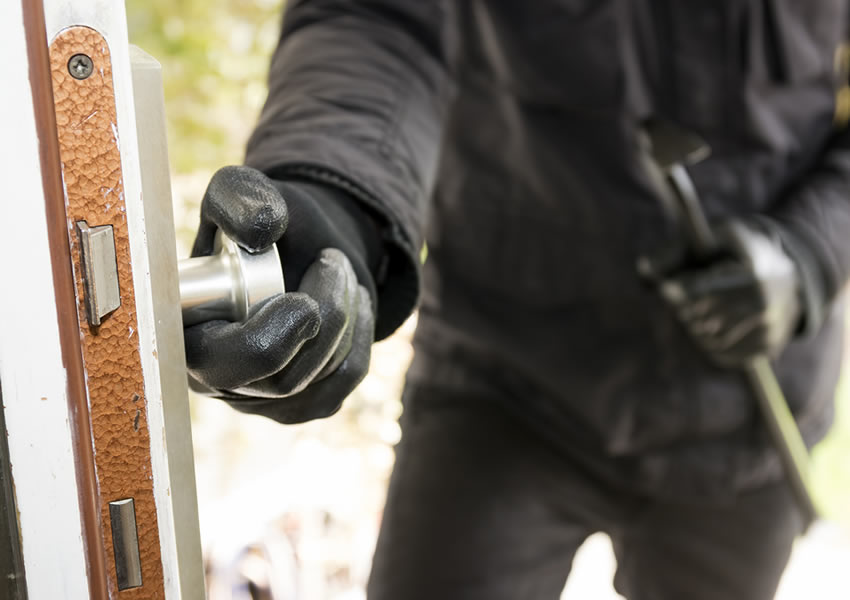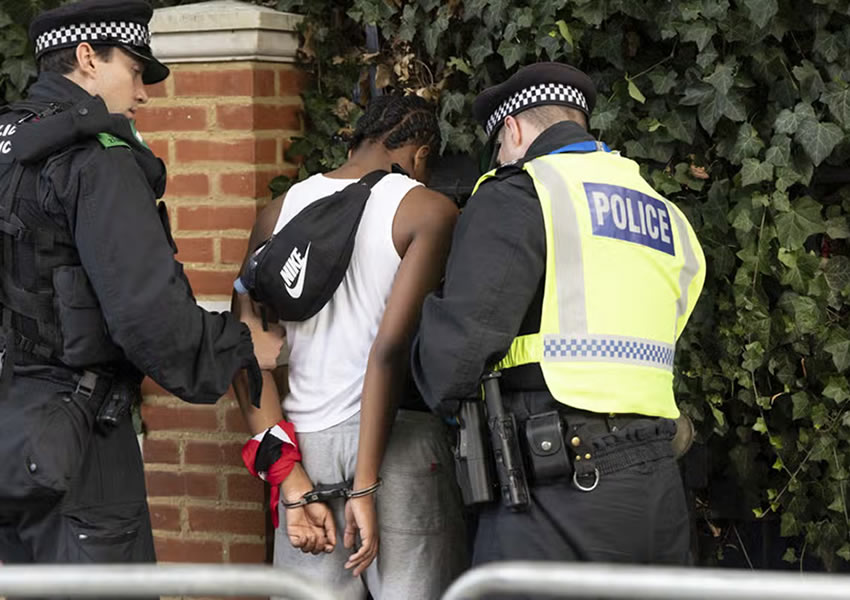Make your home safer—and get insurance discounts, too
Burglars won’t find your home an easy target if it’s well lit and features security measures that slow them down. Don’t let your home be an easy mark for theft and vandalism. Protect yourself and your belongings—and save on insurance premiums—by employing commonsense safety precautions.
Check your home for security weaknesses and correct them
Research shows that if it takes a thief more than four or five minutes to break into a home, he or she will go elsewhere. Take the time to “case” your house or apartment just as a burglar would and consider these steps to make it more crime-resistant, especially at points of easiest entry.
- Install simple security devices. Padlocks, door and window locks, grates, bars and bolts can increase the amount of time it takes to break into your home. Make sure the elements you already have in place are working properly.
- Invest in a burglar alarm. The most effective ones also ring at an outside service.
- Invest in security cameras. Cover key entry points and mount out of easy reach to deter tampering, these tell burglars that someone is watching.
- Trade a bit of privacy for added security. Trim trees and shrubs near doors and windows and think carefully before installing a high, wooden fence around your back yard. High fences and shrubbery can add to your privacy, but can also be an asset to a burglar.
- Shine a light. Force any would-be burglar out of the shadows. Exterior lights and motion detectors, mounted out of easy reach, can reduce the darkness shielding a would-be burglar.
- Keep valuables out of easy sight. If your valuable paintings, silver collection or home entertainment system are easy to see from outside the house, consider rearranging your furnishings to make your home less inviting to criminals.
Home entry point security
To help foil break-ins, strengthen the barriers at your home’s entry points. Of course, don’t sacrifice personal safety in this effort—whatever security features you install, make sure that you are able to easily escape in case of a fire or other emergency.
- Doors — Doors should be strong. Outside doors should be metal or solid hardwood, and at least one-and-three-quarters inches thick. Doorframes must be made of equally strong material, and each door must fit its frame securely. Even the most efficient lock, if it is placed in a weak door, will not keep out a determined burglar. A peephole or a wide-angle viewer in the door is safer for identifying visitors than a door chain. Sliding glass doors present a special problem because they are easy to open but, if you have these doors, you can find special locks for them.
- Locks — Deadbolt locks are best. They usually are locked with a key from the outside and a thumb turn on the inside. The cylinder (where the key is inserted) should be pick-resistant. Ask your hardware dealer for a reputable brand or buy your locks from a reliable locksmith.
- Windows — Key locks are available for all types of windows. Double-hung windows can be secured simply by “pinning” the upper and lower frames together with a nail, which can be removed from the inside. For windows at street level or on fire escapes, consider installing metal accordion gates.
Home security habits
Don’t inadvertently invite crime into your home—make these safety behaviors non-optional.
- Establish a routine to make certain that doors and windows are locked and alarm systems are turned on.
- Avoid giving information to unidentified telephone callers and announcing your personal plans online or in public notices (such as giving your address when advertising items for sale).
- Join with your neighbors to keep a close watch on what’s happening in your area—working together as a community is a good way to prevent crime.
- Notify the police and/or your neighborhood watch if you see suspicious strangers in your area.
- Don’t carry house keys on a key ring bearing your home address or leave house keys with your car in a commercial parking lot or with an attendant.
- Don’t hide your keys in “secret” places outside your home—burglars know where to look.
Home security tips for when you’re away
To prevent burglars and vandals when you’re away for vacation or business, it’s critical to make your home looked occupied and have friends and neighbors look out for suspicious activity. Some hints:
- Leave blinds open in their usual position.
- Notify dependable neighbors when you plan to be away; consider notifying police, as well.
- Arrange to have your lawn mowed in summer and your walk and driveway shoveled in winter.
- Stop newspaper deliveries and ask a neighbor to pick-up “throw-away” newspapers and circulars.
- Have mail and packages picked up by neighbors; alternately, have them forwarded or held by the post office.
- Lower the sound of your telephone ringer and answering machine so they can’t be heard outside.
- Use automatic timers to turn lights and a radio on and off in various parts of the house at appropriate times.
Insurance benefits of home security measures
Devices that make a home safer—such as dead-bolt locks, window grates and bars, smoke, fire or burglar alarm systems, and some security camera systems—make sense for your homeowners insurance bottom line, too. Most insurance companies provide discounts for qualifying security devices; check with your insurance professional for specifics.






